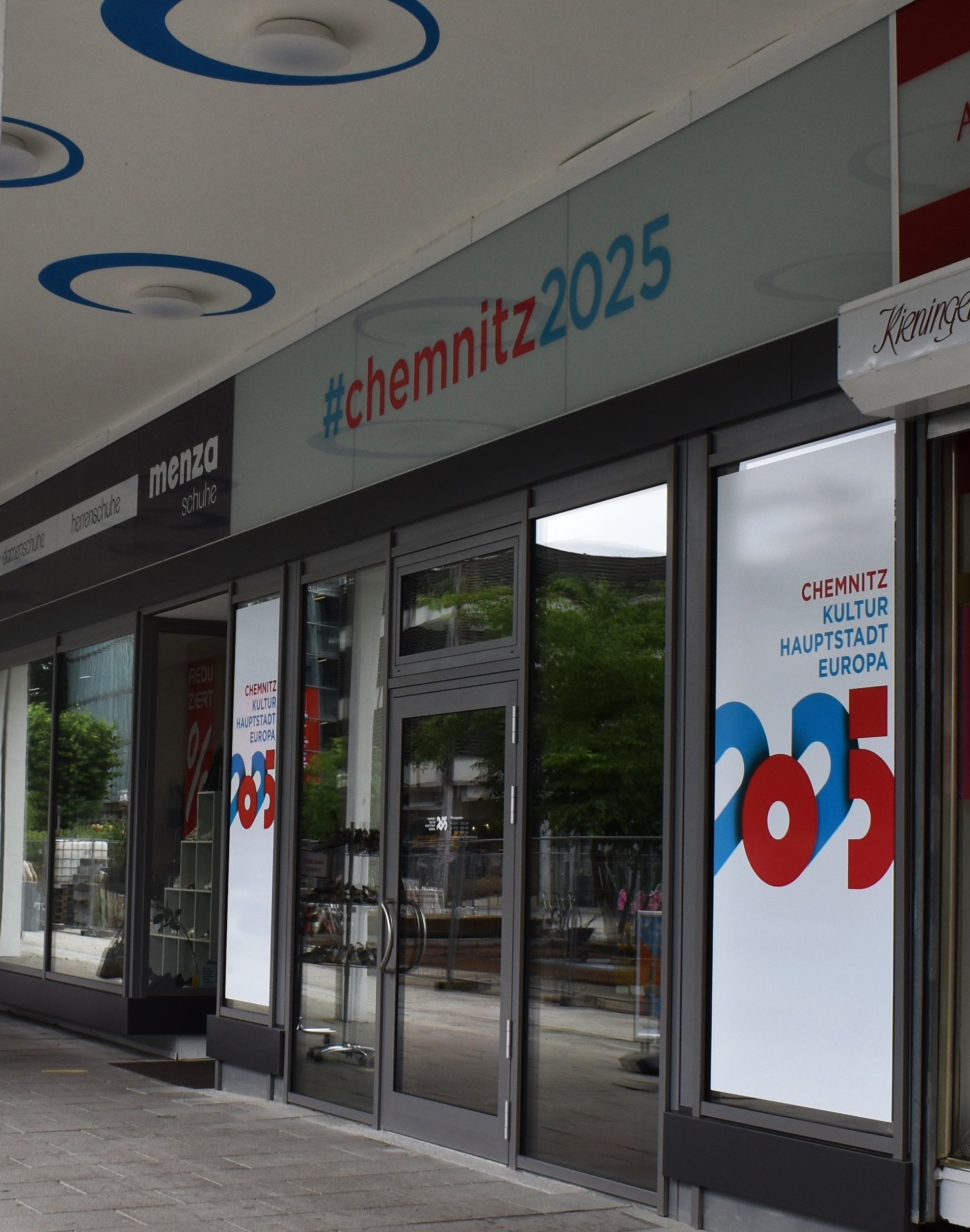The Cultural Capital Secretariat recently submitted a plan to the steering group tasked with strategic control of the bid as »European Cultural Capital 2025«: it lays out milestones for civic participation by residents of Chemnitz, project communication and the preparation of a bid book. The steering group adopted the project plan with a number of additions.
Lord Mayor Barbara Ludwig: »By adopting the milestones, the steering group has laid the foundation for our bid. Now things are hotting up, and we will proceed down this path self-confidently. I am particularly looking forward to the discussions we plan to hold with residents of Chemnitz and the ideas, perceptions and proposals we will doubtless acquire in this process.«
The first measure is to open a Cultural Capital Office to be accessible and contactable for Chemnitz citizens. For this purpose, the Cultural Capital Secretariat will probably move into retail space at Rosenhof on 1 July. The facilities will include a large conference room, which the Cultural Capital Secretariat will furnish together with the municipal theatres in Chemnitz. The room will become a creative environment for meetings, workshops and events.
Living Room Tour planned
Starting this summer, the Cultural Capital Secretariat plans to hold a »Living Room Tour« in the districts of Chemnitz to promote civic participation. »We want to create a travelling living room to chat with the residents of Chemnitz in a cosy atmosphere and in each of the districts in which they live. Intense discussions over recent days and weeks have shown that the residents of Chemnitz have incredible ideas. We want to collect these thoughts directly from the people in our living room«, says Ferenc Csák to explain the project.
Micro-projects as test balloons
The bid lives and breathes through projects. So the Cultural Capital Secretariat is already looking to support associations, initiatives and stakeholders and to collaborate on the completion of micro-projects.
The micro-projects could become initial test balloons for the year as Cultural Capital. They are intended to demonstrate just how much potential is lurking in the emerging Cultural Capital of Chemnitz. The programme council will be in charge of preparing the bid contents and doing the creative groundwork. Smaller workgroups will collect and design content in individual areas.
There are plans to convene workgroups for fine and performing arts, museums, music, media/film, literature, urban history, architecture, commerce/retail/trade/industry/crafts, the creative economy, festivals, mobility, innovation culture, industrial culture, churches, sport and urban gardening. The topics of cultural education, culinary life, youth and social culture, administrative culture, migration, inclusion and sustainability will flow into the bid as overarching topics.
To define the milestones, the Cultural Capital Secretariat consulted with representatives of the independent cultural scene, the Chemnitz business development corporation and the 875-Years of Chemnitz Team, the advisory council for culture, the contact office for cultural education, the adult education centre and the university, the Future Cities Initiative and public administration during a multi-day workshop.
The purpose of the workshop was primarily to collect ideas and to obtain an overview of the Cultural Capital projects. The stakeholders used the opportunity to define focus areas on the way to preparing the bid.



Get Social